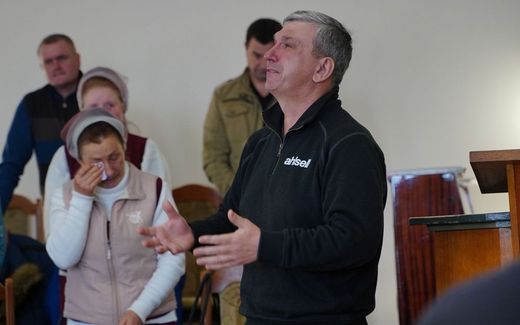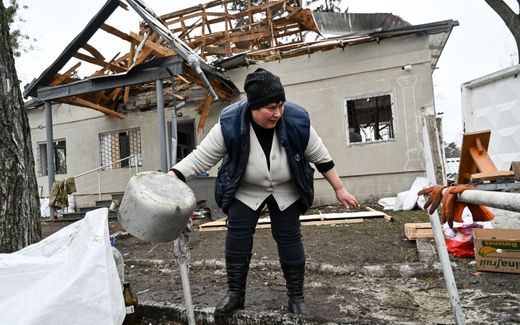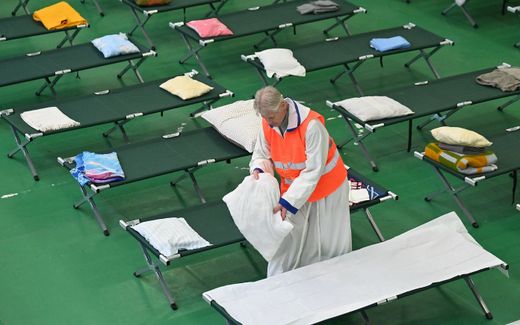Weekly column: Bulgaria welcomes refugees on Liberty Day
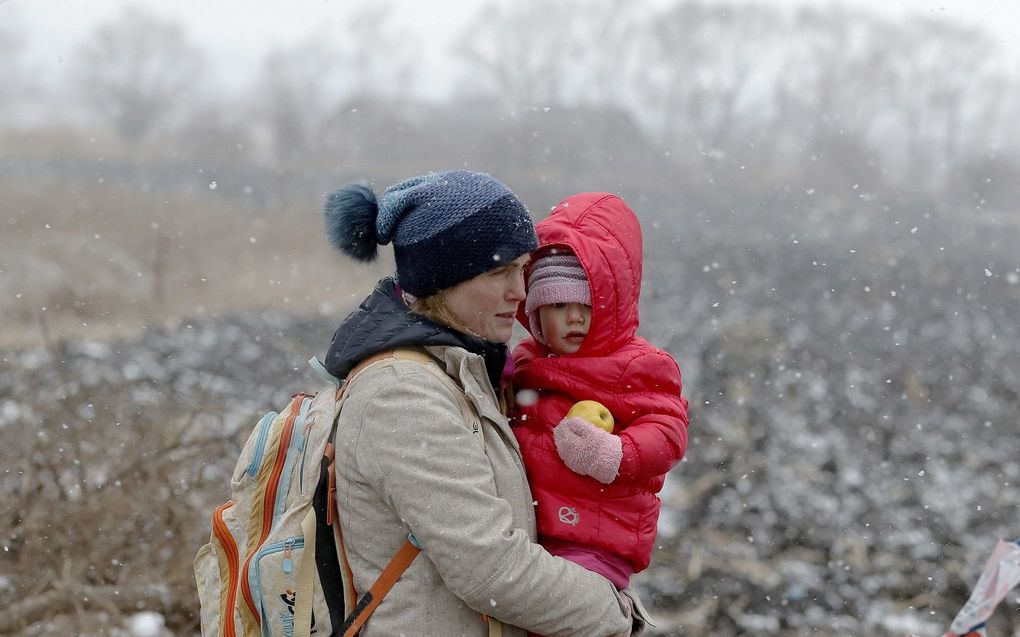
A Ukrainian mother holds her baby as she passes through the border crossing of Siret, northern Romania. Photo not related to the article. Photo EPA, Robert Ghement
Christian Life
Mykhailo took his first breath on Thursday last week, March 3. Three days later, Mykhailo’s mom Olena celebrated her birthday: she turned 40. In a different year, the week would have been one of festivity and joy.
However, Olena is having a really hard time celebrating. She is currently a refugee. As soon as the first bombs hit Kiev, she packed a few bags and heedfully drove south toward the border, with her children (13 and 16 year old). They ran for their life. Her husband Andrey, ecologist by profession, was mobilised by the Ukrainian government and received a weapon to defend important infrastructure.
Vlady Raichinov (1974) is translator of both fiction and theological literature. He is a member of the Union of Bulgarian Journalists, co-hosts a radio program, and writes articles.
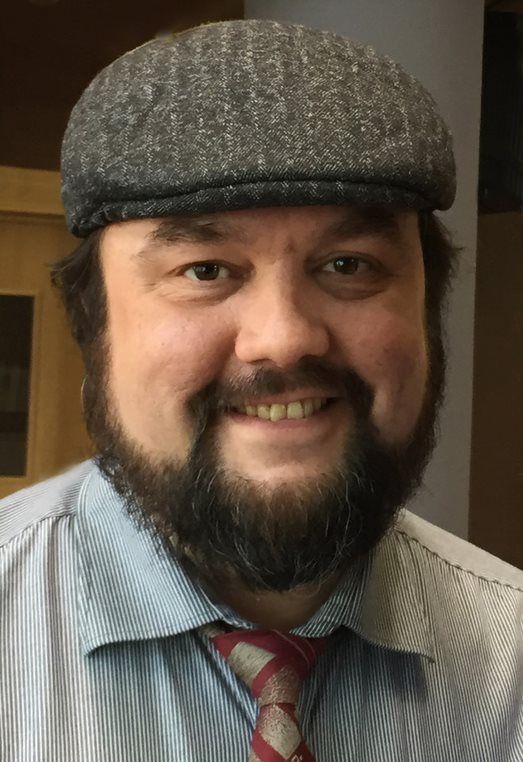
He presides over the Bulgarian Evangelical Society, publisher of "Zornitsa" – the oldest Bulgarian newspaper that has been in print since 1871.
In December 2014, Vlady was ordained as a minister with the Bulgarian Baptist Union and is currently serving in the pastors' team of First Baptist Church, Sofia. He is also vice president of the Bulgarian Evangelical Alliance.
Vlady and his wife Katya parent a beautiful pre-schooler named Maria.
After fifteen hundred kilometres down the road, having crossed several borders, the pregnant Olena Malyovana and her two teenagers landed in the small seashore Bulgarian town of Primorsko. The stress and anxiety caused premature labours, and she was quickly placed at the “Virgin Mary” Hospital in the nearby city of Burgas. In a safe and clean environment, assisted by a team of cordial professionals, she delivered a healthy baby.
Mykhailo was the first child born in Bulgaria to a refugee mother since the beginning of the war in Ukraine. The baby appeared on the very date when Bulgarians annually observe their Liberty Day from Ottoman dominion.
March 3 is dividing instead of uniting
Officially a holiday in Bulgaria, March 3 commemorates the signing of a peace accord back in 1878. Historically known as the Treaty of San Stefano between the Russian and Ottoman empires, it guaranteed the establishment of an autonomous Bulgarian state after almost 500 years of Turkish rule.
This year, Bulgarians reminisced the events leading to the treaty with mixed feelings. Russia’s current war on Ukraine (kindly called “a special operation” by Kremlin propaganda) cast a dark shadow over Bulgaria’s Liberty Day celebrations. The observances were notably controversial amid anti-war protests in Sofia last week. In the meantime, a growing number of public voices have suggested that the nation should re-examine its traditional view of Russia as a “liberator”.

“Rather than uniting Bulgarians, March 3 is dividing them,” historian Plamen Pavlov said during a Liberty Day radio interview. He suggested that the nation should pay tribute to all people who lost their lives for the freedom of Bulgaria, not just Russian soldiers. The country’s Liberty War in 1877-78 resulted in thousands of casualties, including Ukrainians, Finnish, Romanians, Serbians, Montenegrians, and others. The mainstream narrative, however, especially during the Soviet era, exclusively highlighted the role of the Russian Empire. In fact, March 3 was instituted as a national Liberty Day in 1978, while Bulgaria was still a USSR satellite state.
One in three Bulgarians support Russia
Today, Bulgarians increasingly see this account as biased, servile and demeaning. “We are now observing our Liberty Day as never before: abhorred, bewildered, embarrassed, resentful, and muffled,“ journalist Svetoslav Terziev wrote in the eve of March 3. „On the backdrop of Putin’s war in Ukraine our country ended up in a unique position: to thank Russia for its past and to judge it for its present.” For the most part, Bulgarians traditionally sustain a warm disposition towards Russians, but the current invasion significantly cooled down this mindset. Since Russia’s massive invasion into Ukraine, negative sentiments have increased significantly. Debates on removing prominent Soviet monuments and placing them in museums were reignited with more agitation than ever.
Even though Kremlin's disinformation campaigns have taken their toll (one of three Bulgarians applauds Putin’s policy, according to a poll in March), the public strongly condemns the war. Institutions, media, businesses, cultural establishments and religious groups have expressed a deep grievance and explicit criticism against the aggression.
Grace is more potent than any tyrant’s hate
“With the first media reports of bombings and street tanks, you get the feeling that you’re watching old footage, a black-and-white film from World War Two,” commented Bulgarian writer Georgi Gospodinov. “Your mind is unwilling to accept that this can be happening here and now. These videos, though in colour, have a sepia look of sorts. It’s the grey, black and white of burned down houses, muddied roads, scorched tanks and machinery, dirty horizon: the colours of all wars. The discoloration of the world.”
In the morning of February 24, Bulgarians woke up as shocked as anybody. A peaceful nation was under a military attack only a few hundred kilometres away. Within hours, news started flooding in from relatives, close friends, colleagues: they packed a bag or two and quickly fled from the blasts. As men were not allowed to exit the country, most of the refugees were women and children.

Bulgarians responded immediately. Solidarity posts with the Ukrainian flag quickly dominated the feed of social media with anguish, solidarity and the desire to help. Long before the government instituted a crisis response unit, thousands of people had already formed word-of-mouth groups and were organizing various forms of support. Telegram chats, Facebook groups and other forms of online media were soon filled with announcements of people providing transport, offering apartments, or collecting blankets and food. A hectic array of messages pushed down forum feeds: “Two moms with five underage kids are looking for transport from the Moldavian border”; “Five refugee women with eight children urgently need a place to spend the night in Varna,” etc.
Refugees were welcomed
Locally, hundreds of people responded to the need and started setting up relief systems. Businesses offered temporary jobs; private schools announced desire to accept Ukrainian children; seashore hotel owners declared free accommodation out of season; dentists and lawyers posted pro bono services. The Red Cross and other social institutions established forms of collecting aid.
Churches of every confession swiftly responded by furnishing spaces to shelter for refugees, stacking clothes and canned food, securing medical and hygiene supplies, translating orientation materials, and sending mission teams to the borders. A prayer initiative summoned hundreds of Evangelicals online every evening to intercede for the situation, while congregations undertook fasting and set up prayer chains. Some denominations, like the Baptists and the Pentecostals, channelled emergency financial relief for their Ukrainian counterparts. Many rounded up resources in coordination with Ukrainians living in Bulgaria. The Evangelical Alliance, a representative body of Bulgarian protestants since 1908, organised a fundraiser campaign that collected the equivalent of 68,000 Euros for urgent humanitarian aid for Ukrainian evangelicals.
By the time this article was written, some 50,000 refugees have entered Bulgaria since the outbreak of the war. On the most vulnerable day of their lives, many of them are met with a smile and embrace, a warm drink, a waiting car, an open room. Even though most Bulgarians do not profess active Christian faith, their culture has been permeated by Biblical values for many generations. Among those is a core conviction that every human being matters. It is this underlying persuasion that has prompted many to stand up to the call and extend a hand of grace. By learning names and stories, by settling refugees with local families, by building relationships, by weeping with and praying for broken families, orphaned children and demolished lives, they instinctively display the deepest of truths: that God’s heart bleeds more for us than we will ever know.
A bright light in a dark night
After spending his first few days in a Burgas hospital, Mykhailo and his mom were discharged in good health. “I am so relieved that my baby boy is doing well,” Olena Malyovana exclaimed with gratitude and fatigue in a TV interview, as journalists wished her wellbeing for her 40th birthday. “My children are safe, and this makes me happy. But I am deeply frustrated that I am not at home and my husband is unable to see our son,” she added.
A few hours later, Olena was surprised by another unexpected gift. Ivan Kirilov, who had hosted them upon arrival a week earlier, decided to donate his apartment to Olena and her family. “As the baby was born on March 3,” he said, “my wife and I made up our mind. The apartment is theirs!”
In the darkest of times, light seems to shine brightest.
Related Articles



